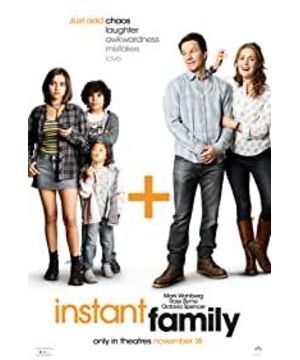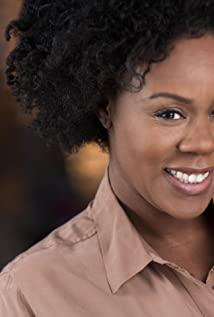The story focuses on a practical issue that cannot be ignored in American society—child adoption. Although it cannot escape the routine routines of family comedies, it has a unique perspective and is a good film full of sincerity and tears in the audience’s laughter.
Director Sean Anders does not have many works, but he is not a newcomer in the field of comedy films. He served as a screenwriter in "Mr. Pope's Penguin" and "Fake Family", and is also the director of "Evil Boss 2" and "Daddy Alone". He is very familiar with comedy films.
Actor Mark Wahlberg and director Sean Anders have collaborated for the 4th time in this film, and their last film "Dad Home Alone 2" won Mark the 38th. Nomination for the worst actor in the Golden Raspberry Awards. This is one of the reasons why "Instant Family" did not receive much attention when it was released.
The heroine Rose Byrne is a truly beautiful and powerful actress. At the age of 21, she won the Venice Film Festival with "Meet the Goddess of 1967" and was nominated twice for the Golden Globe Award for Best Female Supporting Actress. But more people know her because of her role as CIA agent Maura Marktagt in "X-Men", Professor X's young lover.
In this film, Pete and Ally, played by Mark and Rose, are a middle-aged couple engaged in house decoration and design. Because they are busy with their business, they have no children after they are over 40, so they have the idea of adopting children.
Actions are not as good as heart moves, and the couple with superb executive ability immediately went to learn everything about child adoption. After a comprehensive theoretical course training, an embarrassing park parent-child speed dating, the couple formed a temporary family with the third Latino siblings, Liz, Juan, and Rita.
I have to admit that the park is really a mecca for speed dating, no wonder that the domestic blind dates are also located in the park.
Although the social worker had given Pete and Ally a full vaccination, the couple who liked to be parents didn't care at first. But after the "parent-child honeymoon period", the problems of the three children gradually emerged.
As the social worker said, the youngest daughter Rita habitually yelled and violently resisted, and her son Juan was fragile and sensitive. Pete and Ally are faced with escalating family problems and are frustrated. In the successive frictions and running-in, the relationship between the husband and wife and the two children became more and more intimate, and they also gained the first words "dad" and "mother" they heard in their lives.
Compared with the two children, Liz, who is in adolescence, is obviously more difficult to approach, and she has not fallen behind the typical problems of rebellious teenagers-this is one of the reasons why teenagers are not welcomed by adoptive families. From the way the foster parents educate and take care of the younger siblings, to Liz's own clothing and social circle, any problem can trigger a fierce quarrel between her and her adoptive parents.
In order to get along with Liz better, Ellie and Pete kept throwing olive branches at her.
When she found that Liz's hair was knotted, Allie took the initiative to take out a comb to comb her daughter's hair. A few tiny movements and expressions fully portrayed the delicate and careful relationship between the mother and daughter.
After Liz and Ally had a big quarrel, Pete did not punish Liz regardless of the reason, but took her to the old house that was being renovated and let her smash and vent wantonly.
After several conflicts, Liz finally showed her soft and fragile side. However, whenever the adoptive parents thought that the ice-breaking was successful, the next second she would push the adoptive parents away awkwardly-she never thought that she was loved. After passing through multiple foster families, Liz believes that adoption is just a charity done by adults to satisfy their vanity, rather than true love for themselves.
She also sent a soul torture to the adoptive parents: Why do you adopt us?
This made Allie's speech choppy for a while, and she didn't know how to answer.
At the same time, the biological mother of the three siblings was also released from prison, which made Liz look forward to returning to her biological mother. Out of selfishness, the excessive words and deeds of the adoptive parents to protect the children were stated out of context by Liz to the judge, and Pete and Ally also lost custody of their three children.
But in the end Liz waited for bad news from the social worker-her biological mother was not ready to raise three children. Faced with such a situation, Liz was disappointed and could no longer pretend to be strong.
At this time, Ellie and Pete answered Liz's previous questions, thereby persuading Liz to return.
Even though the three children are labeled with Latino/to-be-adopted/drug-addicted mothers, for white middle-class families, adopting them seems to be a political correctness.
But for Ellie and Pete, children are not a symbol used to satisfy vanity. They sincerely give love, and they have gained their children's trust and love as they wish.
Although some netizens said that this is a public welfare film promoting adoption, what the director wants to do is not simply standing in the center of the world and calling for love.
Why adopt a child?
How should I get along with my child after adoption?
These are two questions raised by the director.
The house decoration design profession that Pete and Ally are engaged in is a very clever setting.
When the issue of adopting a child was raised, the couple stood in an old house that was in desperate need of renovation. This symbolizes that the two are about to smash the existing lifestyle and usher in new challenges.
The first olive branch that Ellie threw to Liz was for her to decide the color of the walls in her room. And Liz used black walls to construct a closed world for herself.
After Ellie and Liz quarreled fiercely, Pete smashed Liz's old house to vent his anger. In fact, when Liz used her rebellious behavior to destroy her relationship with her adoptive parents, she was also venting the grievances and anger she suppressed in her heart since childhood.
When Liz proposed to see her biological mother, Pete and Ally, who were happily tiling the walls, stopped their work.
The house that I thought was about to be completed, the completion time has become indefinitely, and the new family is also facing a crisis of breaking up before it is really formed.
At the end of the film, a family of five walked out of the new house with clear windows and clean windows and went to the court to go through formal adoption procedures. Along with the new house, there is this brand new family.
The scene of shattering and reconstructing the house runs through the entire film. This is what the director wants to tell the audience: for adoptive families, love and being loved are both a process of shattering and reconstruction.
What Ellie and Pete shattered was the two-person world they were familiar with.
Since then, there have been more stinky socks littered all over the house, water stains that cannot be wiped on the floor, endless quarrels and countless hugs.
And what they rebuilt is a new life full of love, even if it is trivial and messy.
What Liz smashed was the shell she used to protect herself.
The long-term foster life made her accustomed to the role of the guardian of her younger siblings. She was strong and mature but could hardly trust others. This is her way of living.
In the process of getting along with Pete and Ellie, she became more and more rebellious. On the surface, it seems that she is not as gentle and easy to get along with at first, but in fact, she behaves more and more like an ordinary adolescent girl-she is regaining her identity as a child.
And what she re-established is the confidence to be loved.
In the "Green Book", Tony wrote to his wife in a letter: You sometimes remind me of a house where all the lights are lit and the children laugh and play in it.
The formation of a new family is never easy. Adoption is to build such a house of love during repeated fragmentation and reconstruction.
View more about Instant Family reviews











